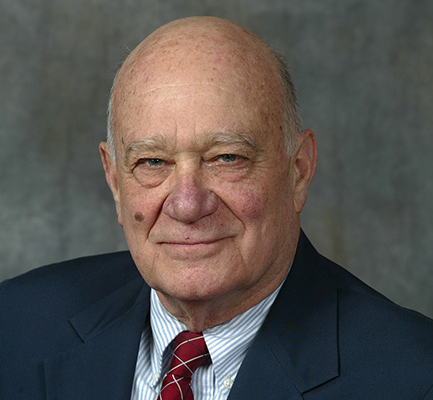The National Commission for the Public Good does not exist – yet! But there is a prospect that President Biden can make it a significant proposal of his First 100 Days.
As the new president said in his impressive inaugural address, we need to put a stop to “uncivil wars.” We must seek paths for “unity” that affirm the “beacons of our democracy,” so celebrated by Lincoln.
Extreme divisiveness and polarization of our politics and society do not need amplification at this point. Yet, as we seek Res Publica (“the public good”) we need to address vexing challenges:
1) Major government officials, leaders in both parties, every judicial review, along with independent analysts in the United States and abroad have stated that the 2020 U.S. election was not only fair and legal, but it was one of the most impressive in terms of voter participation for the past century.
2) Notwithstanding the preponderance of those objective realities, Donald Trump, in the words of his own former chief of staff and several of his own associates, “poisoned the minds” of many Americans by refusing to accept the election results. He claimed the election was “rigged” months before it took place.
Then he organized a Trump protest movement with the slogan “Stop the Steal.” He is now facing impeachment charges for a second time, with the most bipartisan vote on such an issue in the history of the House of Representatives.
In order for this new commission to succeed, a two-track process needs to be followed. Trump’s fate must be left to the Senate jury, to media evaluations and to the judgments of history.
Just in the past week, two notable leaders who have been speakers at Great Neck’s Temple Emanuel (Douglas Brinkley and Steven Schmidt) reinforced their earlier judgments, now with more evidence and passion, concluding that Trump “is the worst president in all of American history.”
Everyone will now be asked to look beyond Trump to consider challenges faced by all Americans, as the nation goes forward in policies and discourse. What are the appropriate roles for individuals, organizations, political parties, elected officials at the national and state level?
It is essential for Biden to enlist the assistance of principled Republicans to be members/leaders of this commission, for to seek Res Publica absolutely requires bipartisan support. Leaders for the commission should come from different political affiliations, and reflect American diversity. They need to set an example for the nation in putting aside any discussion whatsoever of Trump, and instead focus exclusively on the concerns and aspirations of all American citizens.
Fortunately, we already have some excellent models of ways to bring people together, even when they have strong differences in politics and values. Hofstra University’s Center for Civic Engagement has been fostering activities in which citizens will commit to the following: 1) attentive, respectful listening to others; 2) engaging in civil, sustained discourse to consider goals, actions, and trade-offs that can be accepted in the quest for “common ground” (for res publica). Whether in our classes or in community conversations, the nearly unanimous conclusion by participants is that these deliberative forums are distinctive, uniquely, citizen-enhancing experience (“A Different Kind of Talk”).
For me, and many Long Islanders who have already had experiences with National Issues Forums and the Kettering Foundation, such endeavors have been among our most encouraging paths to improve our democracy with approaches that bring people together during community conversations.
I was pleased to have the opportunity at Great Neck’s Temple Emanuel (in a program shared with my daughter, Leah Libresco Sargeant) to advance some commission ideas [the program Leah and I did was called “Res Publica: Can Americans Move beyond Polarization to Foster the Public Good?” (Rabbi Widom indicates that the recorded session might still be accessed (for free) if you phone Temple Emanuel (516) 482-5701.]
What a delight it was for me to address this important topic with daughter Leah. I exercise restraint for celebrating her (mostly because she has absorbed her mother’s modesty!) I could more fully appreciate why father-daughter shared ventures have special significance in American history.
At our Emanuel talk, Leah gave a host of affirmative initiatives that groups and folks could undertake to foster the common good. Some critics of my presentation felt I spent too much time on the domestic violence of Jan. 6 and Trump’s role in it (notwithstanding that many historians have been saying that fixing accountability for wrongdoing with public punishments is essential in order to move to the public good).
My idea of a national commission led to the suggestion that an ideal person to chair such a bipartisan endeavor is David Mathews, president of the non-partisan Kettering Foundation. Mathews has a stellar reputation as an independent spokesperson for “making democracy work as it should.”
Among his many honorary degrees, one was conferred by Hofstra 20years ago in recognition of a trifecta of Mathews’ extraordinary achievements; 1) addressing race and civil rights when he served as president of the University of Alabama during the 1960s; 2) his key cabinet post of secretary of Health, Education and Welfare (HEW in those days) when Gerald Ford was president; and 3) his leadership for nearly 40 years of the Kettering Foundation.
I will have more to say in coming weeks about the commission and about a project already underway. You are invited to join L.I. folks who have been responding to our Emanuel presentation, by 1) suggesting individuals you would like to see leading and serving the Res Publica Commission (including on the state Common Good Commissions, which will be coordinated by the national bipartisan directors); 2) by choosing to participate in Zoom forums on “The Hidden Common Ground Initiative” sponsored by Hofstra’s Center for Civic Engagement, the Kettering Foundation, National Issues Forums Institute, USA Newspapers and The Public Agenda Foundation. A forum lasts approximately 75 minutes. To respond, or raise any queries, email to michael.dinnocenzo@hofstra.edu



